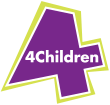-
News
-
Resources
-
Events
4Children welcomes reformed Early Years Foundation Stage framework
27 March 2012Today (Tuesday 27th) sees the publication of the reformed Early Years Foundation Stage framework, the national standard guidance for professionals working with children aged 0-5, which outlines expected standards of early years education and welfare to ensure children’s learning and development.
This will come into effect on 1st September this year and is set to simplify and streamline the demands made on those providing early years education whilst highlighting the vital role that parents play in their children’s early development.
In the revised framework, the Government have pledged to reduce and consolidate burdens and paperwork on the workforce in order to give time to practitioners to focus on quality and child development more effectively. In preparation for the reformed framework, the department for education conducted a series of sector consultations which has resulted in supporting guidance to supplement the crucial EYFS resources already available.
The reformed framework takes forward the Government’s changes to the 2008 framework as recommended by Dame Clare Tickell’s independent review in 2011. Building on the good practice of the 2008 framework the revisions will see:
- reduced paperwork and bureaucracy on practitioners;
- strengthened partnerships between parents and all professionals – especially in the area of health, linked to the DH’s call for action for 4,200 more healthy visitors by 2015;
- a focus on the three prime areas of learning most essential for children’s readiness for future learning and healthy development (personal, social emotional development, communication and language, physical development);
- detail around the the four specific areas of learning which build on the prime areas of Literacy – including reading and writing - Mathematics, Understanding the World and Expressive Arts and Design;
- the introduction of a progress check at age two to provide for early intervention as necessary; and
-
a simplified assessment at age five – The EYFS Profile which will take place at the end of the reception year.
Anne Longfield OBE, Chief Executive of 4Children, said:
We know that the Early Years Foundation Stage is absolutely vital to children’s long term outcomes: by providing for children’s development, and their learning as well as excellent childcare we can safeguard the future of our children and build thriving healthy lifelong learners.
As strategic partners of the Department for Education on their Early Years work we have seen how rigorous the consultation with practitioners has been in devising the revisions. We firmly believe that the reviews to the framework will firmly focus on the most important aspects of Early Years provision such as interactions with children.
The introduction of the two year old development check is a particularly welcome, and will be crucial to identifying those children who need more help. Early intervention is critical when it comes to any developmental emotional or learning issues, implementing a check as a kind of early warning that a child is experiencing difficulties is an exemplar of good practice.
The framework is well evidenced and gives the clarity that all parents and professionals deserve . It builds on existing good practice and shines a spotlight on the areas most vital to ensure the best possible outcomes for our children and families.”
Further details on the Foundation Years website can be found at www.foundationyears.org.uk or by contacting foundations@4children.org.uk.
4Children is Department for Education’s strategic partner on Early Years. This means that 4Children is main communication conduit with the sector and the new EYFS section of the Foundation Years website is the one stop shop for all information, with examples of best practice and online support through an interactive forum.
